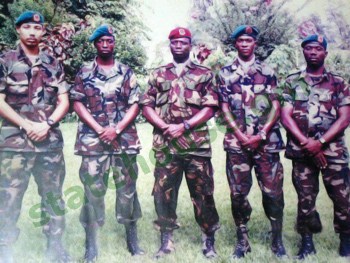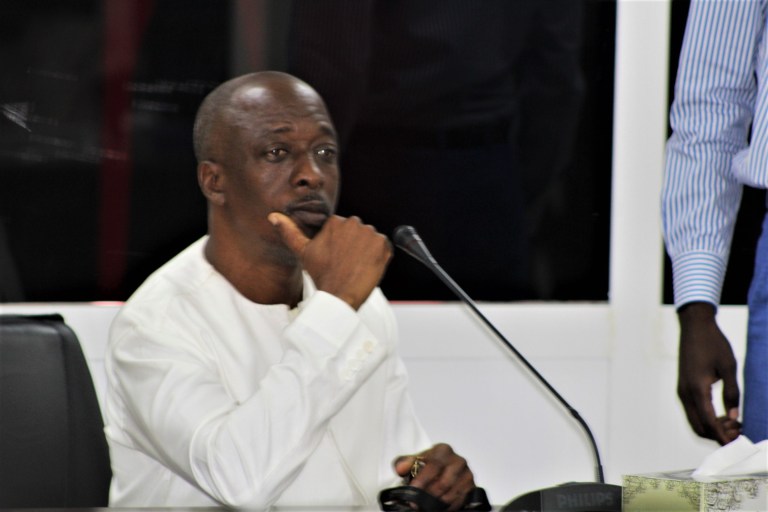An ally of Gambia’s former President Yahya Jammeh on Wednesday was arrested by police in the capital Banjul.
Yankuba Touray who is a former member of the Armed Forces Provisional Ruling Council (AFPRC) that ruled Gambia for years also served as a minister of Agriculture under Mr. Jammeh.
Yankuba Touray was arrested after he refused to testify before the Truth, Reconciliation and Reparation Commission.
The Commission this year started hearing stories of witnesses as it investigates happenings during the Jammeh era.
Yahya Jammeh ruled Gambia for 22 years until he was forced out of power in 2017.
But his country has been left in a state of bitterness due to the several reports of extrajudicial killings, torture and forced disappearances under that regime.
The commission’s work will primarily offer some compensation to individuals who suffered torture, molestation and other crimes including killings under Mr. Jammeh’s regime.
Touray who is a close ally of Jammeh is alleged to have committed human right violations, torture and killings of both civilians and soldiers along with other members of the AFPRC.

Horrific crimes under Jammeh
Some witnesses who appeared before the commission alleged that Touray took part in the brutal killing of former finance Minister Ousman Koro Ceesay at his resident in 1995.
Other witnessed have also revealed in their testimonies that Koro Ceesay was killed at Touray’s house and his body was later taken into his official car and burnt to ashes.
One of the witnesses who appeared at the commission was former lance corporal Alagie Kanyi who was among those who beat Koro to death.

Kanyi said the former finance minister was beaten to death.
“As we were entering the house in Yankuba Touray’s compound I heard sound and it was Peter Singhatey who hit him twice. Edward Singhatey then hit Koro Ceesay with a pestle three times and he fell down. Edward gave me a stick and I hit Koro and then Yankuba also hit him and the rest were called to join and hit Koro. There was blood all over him and Koro was taken into his official car,” he said.
Touray is also alleged to taken part in the killing of 11 other soldiers in November 1994.
Refusal to testify
But Yankuba Touray who appeared before the commission refused to testify saying he has immunity not to testify.
“I invoke my constitutional immunity, anything that is against the 1997 constitution cannot stand. The 1997 constitution is the supreme law of the country,” he said.
He adds that “I do not recognize the legitimacy of this Commission when I have a constitutional immunity”.
Gambia’s 1997 constitution states that:
(1)No member of the Armed Forces Provisional Ruling Council, any person appointed minister by the Armed Forces Provisional Ruling council or other appointees of the Armed Forces Provisional Ruling Council shall be held liable or answerable before a Court or authority or under this Constitution or any other law, either jointly or severally, for an act or omission in the performance of his or her official duties.
(2) After the coming into force of this Constitution, it shall not be lawful for any court or tribunal to entertain any action or take any decision or make any order or grant any remedy or relief in any proceedings instituted against the Government of The Gambia or any person acting under the authority of the Government of The Gambia, or against any person or persons acting in concert or individually to assist or bring about the change in Government which took place on the twenty second day of July 1994, in respect of any act or omission relating to, or consequent upon:
But the TRRC Act provides for the establishment of the historical record of the nature, causes and extent of violations and abuses of human rights committed during the period July 1994 to January 2017 and to consider the granting of reparation of victims.
There are eleven commissioners who are hearing the stories of witnesses and hope to document the scale of the abuses by October 2020.
Source: Africafeeds.com


